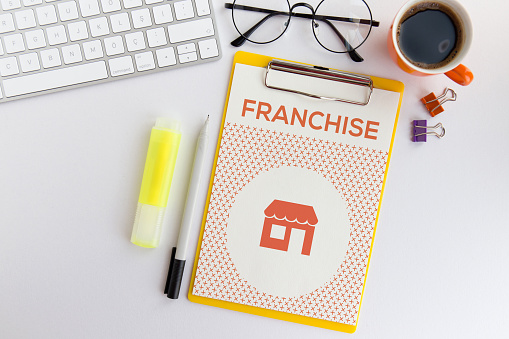
by dorraadmin | Dec 13, 2022 | Blog- Financial
As an entrepreneur, the odds are you’ve experienced financial feast and famine at the different business growth phases. At times, you’ll need a little money infusion when you have empty business accounts to keep moving forward. However, discovering where you’ll settle your financial problems is sometimes challenging. Below is a list of people and institutions you can approach to get money fast.
Close Relatives and Friends
Sometimes, you can reach out to your close friends and relatives to get money quickly. Luckily, a sibling, for example, can lend some cash with no interest. So if this poses an option to take, make no haste. They’re the best if relatives can fund your projects when you request them to.
Banking Institutions
Banks are traditional financial institutions known for offering different types of loans. The list ranges from lines of credit, personal loans, payday, home equity, debt consolidation, and mortgage loans. However, the common denominator is; each loan may pose as secured or unsecured. And since secured loans have fast approval, go for them when you need to get money fast during emergencies.
Online Lending Apps
Often, you’ll need to go to a traditional lender if you need a huge loan. However, online lending apps may be the best option if you need a modest loan amount. Due to technological advancement and competitive rates, online lending has become faster, more convenient, and more efficient. Hence, you can get money fast, an hour after contacting the lender for financing.
Private Money Lenders
Recently, private moneylenders have been rising to cater to entrepreneurs’ financial needs. Money lenders offer safe and secure loans when you need to get money instantly. They charge considerable interest rates on both secured and unsecured loans. Further, if you already have a strong relationship from past borrowing, you stand a better chance of getting instant cash in an emergency.
From the above list, you can reach out for financial support to attain your goals from the most favorable financial lender. Always remember, each choice has its benefits and a few drawbacks. Therefore, if you’re looking forward to taking an instant loan, Dorra Financial Group is your best match. Don’t hesitate to call our esteemed team today!

by dorraadmin | Dec 6, 2022 | Blog- Financial
Franchising is an excellent option for entrepreneurs looking to start a new business. Franchisees gain from a proven product or service, lower overhead, and a built-out supply chain and support system. When choosing a franchise, here are valuable tips to get the most fulfilling and profitable one.
Assess Your Skills and Interests
With franchises available in almost any industry, from fast food restaurants to retail, tutoring, and health and wellness, pick an interesting field that helps attain your professional goals and utilizes your skills and experience. For instance, if you are a music teacher passionate about kids, a franchise providing music classes for toddlers can be a great choice.
Additionally, consider your preferred work environment and working hours. Would you like standard working hours or weekends, working from home, office, or store, working alone or with a big team? Also, take into account travel requirements.
Identify Your Budget
Like any business opportunity, franchising requires an initial investment. The amount depends on several factors, including industry type and business model, and ranges from tens of thousands to millions of dollars.
For example, you can expect the upfront fees for a food franchise to be significantly higher than a home-based franchise. The former requires more equipment and inventory than the latter. Ensure you have enough capital for business expenses and personal living expenses.
Evaluate Franchise Opportunities
It is best practice to look for an established franchise approved by a reputable industry body. Do not settle for the first franchise you come across; compare several options. In each franchising option, assess its investment potential, support system, business approach, professionalism, and online reviews.
Talking to current franchisees is a good way to learn about a potential franchisee. They can shed light on the franchisor’s working relationship, values, ethics, and support system. In addition, franchisees offer valuable insights into the franchise’s pros, cons, and costs.
Choosing a franchise is a big decision with long-term financial and non-financial implications. Settle for franchising that aligns with your goals, passions, and budget and a reputable franchisor who will partner with you for mutual benefit. Once you select a suitable franchise, contact Dorra Financial Group for help financing it.

by dorraadmin | Nov 15, 2022 | Blog- Financial
When you’re launching a business, it’s never too soon to look for opportunities to save money. Entrepreneurs can improve their bottom line by adhering to the following money-saving tips.
Keep Utility Bills Down
Utility bills are an expense virtually every business faces. Luckily, there are many ways to reduce utility costs, including embracing LED bulbs and training your employees to shut down equipment and turn off lights when they’re not needed. An energy audit may reveal even more ways to save.
Use Free or Cheap Software
Before you buy software, do some brief research to determine if a free or lower-cost version will do the job. If the software is involved in a core business competency, then you may need to splurge to the top-of-the-line option, but otherwise, there’s likely a cheaper solution that will suffice.
Focus on Retention
While many money-saving tips prioritize getting rid of unnecessary expenditures, this one focuses on keeping an invaluable resource: your best employees. From the start, continually identify the employees who help your business thrive and do what you can to keep them happy and on board. Turnover is quite expensive, after all.
Look into Contracting
If your business has an occasional or one-time need for certain skillsets, contractors may be the way to go. For instance, if your fledgling company needs a marketing expert to launch its initial advertising push, hiring a skilled marketing contractor may deliver good results while limiting long-term expenses.
Prioritize Remote Work
No list of money-saving tips for startups would be complete without a mention of remote work, especially given soaring real estate prices. Letting as many employees as possible work remotely may allow you to lease a smaller, cheaper business space — or forgo one entirely.
Dorra Financial Group Is Eager to Talk
Even the most frugal entrepreneur can gain a lot by finding the right financial partner. To see if Dorra Financial Group’s services are a good fit for your business, drop us a line.

by dorraadmin | Nov 8, 2022 | Blog- Financial
If you’re an entrepreneur, you likely already have an idea of how important it is to track business expenses. However, there’s a key layer to this task. you should be aware of as well: the difference between direct and indirect costs.
Direct Costs
Direct costs are expenses that are relatively easy to tie to a specific product or outcome. For instance, if you pay a graphic-design contractor $1,000 to design a new logo for your business, that expense is a direct cost.
Indirect Costs
Indirect costs are more nebulous but equally important to track. These are expenditures not tied to any single product or outcome, yet they can have ripple effects across many parts of your business. As an example, your business might spend $10,000 on computers that will be in service for many years and across many projects.
Fixed vs. Variable Costs
Both direct and indirect costs can be fixed or variable. Fixed costs remain stable, while variable ones can change. Typically, direct costs are variable; for instance, materials may go up or down in price. But direct costs can sometimes remain fixed, with an example being labor costs that do not change regularly.
As for indirect costs, rent is an example of a fixed cost, as it will not increase or decrease for the duration of a lease. The cost of repeat purchases like office supplies, however, is variable.
Why Does It Matter?
Knowing the difference between direct and indirect costs may be critical when it comes to applying for grants or other types of funding, as eligibility is often tied to spending the money on one type of cost but not the other. Some tax breaks, too, are triggered by indirect or direct costs only.
Need Funding? Contact Dorra Financial Group
Regardless of how tightly you control costs, your business may still benefit from outside funding. To discuss your business’s financial options with an expert, just reach out to Dorra Financial Group.

by dorraadmin | Oct 18, 2022 | Blog- Financial
Thinking of running a food truck? There are many compelling reasons to invest in the food service industry, and a food truck provides a platform that can be adapted to a variety of business endeavors. If you want to grow your food truck business, consider the following tips for success:
Do your homework. It is necessary to perform quite-expansive research into the market to see what consumers in your region do- and do not- patronize. Find the trends and jump on board.
This leads to choosing what you offer carefully. You don’t want to invest in foods that don’t make sense for a truck- after all, is this the right venue for those choices? Choose the food based on your market research and revenue potential.
Make an exhaustive list of what you need to get started. Figure out how much money you will need to ask for- if borrowing- to keep your truck running smoothly for at least a year.
Do not go to all this effort with a truck that is doomed from the start. Make sure that you have a fully functioning and safe food truck to begin with. After all, it is the cornerstone of your new business.
If you will be requesting funding, set a budget and stick to it. This will also make it easier to measure gains and losses during operation.
Get creative about marketing your truck and make sure to take advantage of social media platforms. This will be a great way to let your patrons know where you will be parked so they can come and find you with ease.
Start now identifying high-traffic locations where you will park your truck. Begin pre-planning a route, but try to remain flexible, too.
Be sure to address and respond to any comments or reviews, particularly if there is a concern or complaint. Reply promptly in a courteous manner.
Want to grow or expand your small business? Talk to the money professionals at Dorra Financial Group. They can shed new light on your funding options, investment potential, and revenue streams that may help your business thrive and prosper. Call or visit today to learn more.

by dorraadmin | Oct 11, 2022 | Blog- Financial
Due to the busy life of most parents, preschool-aged children often receive some form of child care. Most of the kids are cared for by babysitters, nannies, and other family members, and nearly 1 in 4 children under the age of five is taken to an organized daycare center for childcare services. Below is a list of steps to starting a daycare center, even if you have no prior experience.
Research About Daycare Licensing Requirements
You may have started as a nanny or babysitter but must meet the required licensing requirements when creating a daycare business. That way, you can offer childcare services without running into legal trouble. You may start by contacting the state’s Department of Children and Family Services (DCFS) to learn more about specific regulations for childcare service providers. You must have CPR certification, a clean driving record, and documents proving you are committed to providing quality child care. Ask your local agency questions to ensure you satisfy all the requirements.
Create a Daycare Business Plan
Have a business plan that defines your daycare’s operations and procedures, a mission statement, budget, and staffing. The business plan helps to keep you on track and guides you through the startup process. It would be best if you also researched the costs of launching a profitable childcare services business. You may fund your daycare startup with your own money, daycare grants, or a small business loan.
Find a Location for Your Daycare
Whether you are planning to rent an already existing daycare, start an in-home daycare, or start a daycare from scratch, you must find a conducive location for your daycare business. Ensure you check the childcare licensing guidelines and the city’s zoning laws to ensure the daycare business complies with the guidelines.
Get Insurance
All daycare centers require various insurance types to protect children and businesses. Insurance policies include property, liability, business insurance, and workers’ compensation. You have to check with the local childcare provider’s licensing requirements for guidance.
Hire Staff to Run Your Daycare
A daycare with qualified staff is highly sought after by most parents. Childcare staff are subjected to fingerprinting and background checks for further background investigation.
Starting a daycare business is challenging but also rewarding in the long run. You must have a general roadmap for how to get started and contact an expert from Dorra Financial Group to know how you can secure funds to run your daycare.






